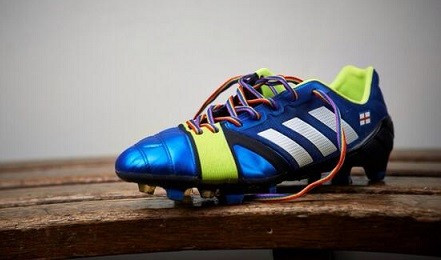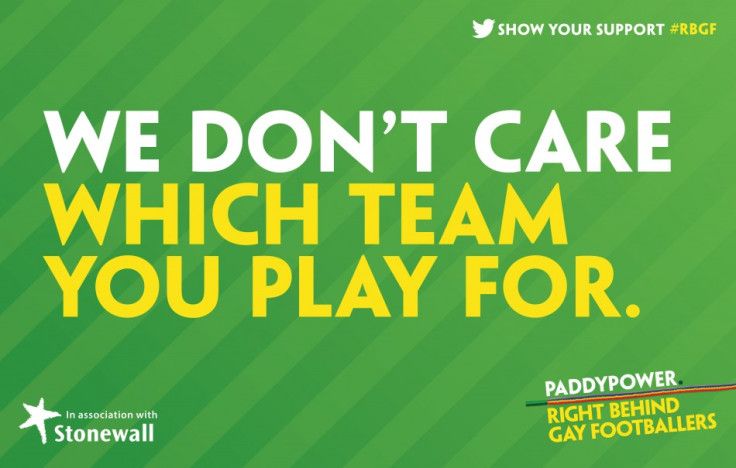Manchester United and Liverpool Refuse to Back Anti-Homophobia Rainbow Laces Campaign

Several Premier League football clubs have said they will not support the rainbow laces campaign against homophobia due to advertising conflicts and poor planning.
Organised by gay rights charity Stonewall and betting group Paddy Power, the campaign involved distributing rainbow-coloured laces to all 134 professional clubs in the UK, in the hope players will wear them in support of gay footballers.
The campaign has already received support from several players such as QPR's Joey Barton, who has been very vocal in his support on Twitter and has worn the laces for two Championship games.
However several clubs have said that, despite supporting the underlying message of the campaign, they will refuse to wear the laces due to fears over Paddy Power's third party commercial link and what they see as a lack of consultation between the clubs, the league and the campaigning groups.
Many other teams have said they will let the players decide if they wear the laces or not.
Reigning champions Manchester United confirmed their players will not be wearing the laces. The club said in a statement: "The club supports the League's central anti-discrimination efforts through Kick It Out. It is a positive move that Stonewall are now speaking to the League directly, rather than working with a commercial provider on a campaign without involving clubs or players at any stage."
Tottenham Hotspur also said that while they support the message, a lack of consultation hindered any chance of the players wearing the laces.
"Such consultation would have enabled us to avoid issues in respect of associated third-party commercial entities," the club said.
Meanwhile, the group Football v Homophobia (FvH) has criticised the campaign's 'Right Behind Gay Footballers' slogan for relying on "sexualised innuendo and stereotypes about gay men".
"Our discomfort is with the reliance on sexualised innuendo and stereotypes about gay men and anal sex, as exemplified by the tag line 'Right Behind Gay Players," FvH said.
"We have contacted Stonewall directly and let them know that we are supportive and keen to discuss ways in which we can work together going forward. We are committed to working with organisations such as Stonewall and other agencies to eradicate homophobia in football and society."
Sunderland are another club who said they "wholeheartedly support" the message of the campaign but are "not entirely comfortable with the third party commercial link to this initiative". Norwich City said they will not be taking part in the campaign as it will clash with the existing deal they have with betting network SBOBET.

A Liverpool spokesperson added they too have taken the decision not to participate.
However, their Merseyside rivals Everton - who are sponsored by Paddy Power - have confirmed they will wear the rainbow laces as a team when they face West Ham.The Hammers said they have been wearing the laces in training, but will not be wearing them for the match at Upton park.
Paddy Power dismissed suggestions that clubs were not given sufficient time to discuss whether they could support the campaign, saying the laces were distributed to every club three days before the campaign was officially launched to give them time to talk to the players.
However, they were keen to stress that clubs and players should not be considered homophobic if they do not wear the laces.
"It's about personal choice; that's the whole point," a spokesperson said.
Meanwhile, FvH has criticised the campaign's 'Right Behind Gay Footballers' slogan for relying on "sexualised innuendo and stereotypes about gay men".
Paddy Power has frequently used shock tactics n their advertising campaigns. In 2012, 92 people complained to the Advertising Standards Agency [ASA] about a Paddy Power advert featuring transgender woman which asks viewers if they could pick out the "stallions" from the "mares". The advert was shown just before Ladies' Day at the Cheltenham Festival.
© Copyright IBTimes 2025. All rights reserved.






















